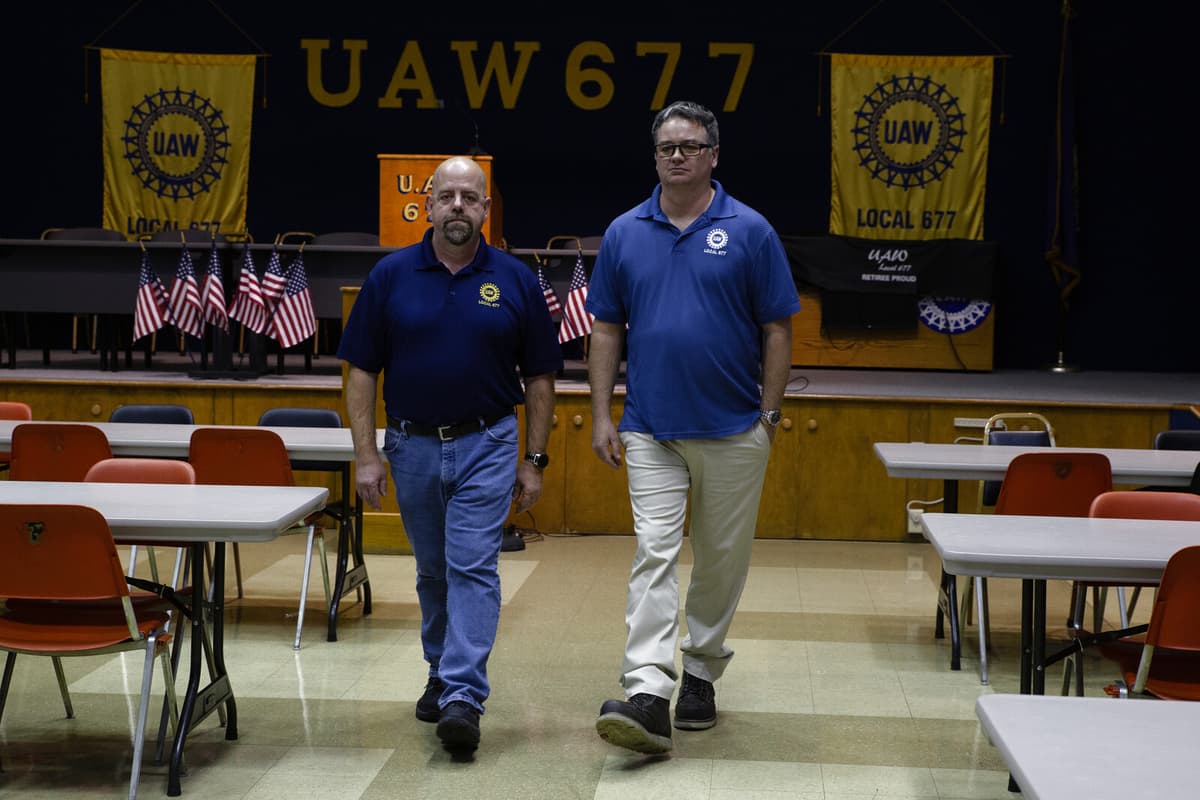A gigantic facility with rust-red chimneys and cisterns towers above the horizon in the city of Bethlehem, Pennsylvania. During the 1900s, the Bethlehem Steel factory pumped out steel used to build some of New York's largest skyscrapers, such as the Empire State Building and Rockefeller Center.
However, the steelworks could not compete with the more efficient factories in South Korea and Japan and ceased steel production in 1995.
When Jeff Fegley opened his brewery in Bethlehem three years later, the city was on the decline after the collapse of the steel industry.
The city center looked very bleak, with closed storefronts. The city's hotels had just gone bankrupt and closed, he says.
Wants to revitalize the rust belt
Small breweries – there are 500 in Pennsylvania – have emerged as industries have shut down.
We have been an important part of the revitalization of the city center in Bethlehem, says Fegley.
The clock strikes one, and lunch guests start pouring into the brewery's restaurant. In a large room behind the bar, rows of steel cisterns are used for brewing beer. President Donald Trump has promised that the tariffs he has introduced will revitalize the rust belt and strengthen its industries and small businesses.
However, the tariffs pose problems for Jeff Fegley's brewery. Both hops for the beer and aluminum for the beer cans are imported.
A large part of the grain we use when brewing beer comes from Canada. If the tariffs remain, we'll have to see how much of the increased costs we can absorb ourselves, and how much we'll have to pass on to consumers through higher prices.
"Victim of injustices"
At the same time, he hopes that Trump's tariff package can also have a positive effect.
The president has a point that the US has been victimized by injustices in trade. He wants the economy to flourish, so I don't think the tariffs will be long-lasting.
I think it's about forcing other countries to the negotiating table and creating new agreements that level the playing field.
The fact that working-class voters abandoned the Democrats for the Republicans was crucial for Trump's electoral victories in Pennsylvania and other states in the "rust belt" in both 2016 and 2024. The term "rust belt" is a dark pun, implying that the former growth region "steel belt" is now rusting away. There, promises to bring industry back to the US resonated with voters.
The United Autoworkers, UAW, supported Kamala Harris in the election, but has praised Trump's tariffs. "We are glad that a president in the US is taking action against the catastrophic free trade that has struck the working class like a bomb," the union writes in a statement.
Takes time to build up industries
However, the 2,600 UAW members working at the Mack Trucks factory, located half an hour south of Bethlehem, are divided on the issue.
Some hope that the tariffs will lead to more jobs coming back to Pennsylvania, says Dan Hand, UAW representative at Mack Trucks. Personally, he is skeptical of UAW leader Shaun Fein's positive words about the tariffs.
I don't understand how he thinks. It will take a very, very long time to build up new industries from scratch.
A new survey from Marquette Law School shows that 51 percent of people in the US without a college education believe that new tariffs harm the economy, while 32 percent think they help the economy.
Dan Hand fears that the tariffs will hit Mack Trucks hard, which in turn will affect the employees.
The components in the trucks come from all over the world: Sweden, Mexico, Brazil... If the prices of trucks increase due to the tariffs, there is a high risk that people will lose their jobs, says Dan Hand.
Countries impose tariffs on goods at import. This can be to protect domestic industry or to generate revenue for the state treasury.
Since Donald Trump took office as president on January 20, he has introduced a range of tariffs in an attempt to reshape the global economy.
On April 2, Trump announced a tariff package that has been described as the most aggressive in modern times. It involves tariffs of 10 percent against approximately 180 countries. 60 countries also received significantly higher tariffs.
Experts believe that the tariffs risk harming domestic industry and having very negative consequences for both the US economy and the global economy.
Last week, Trump partially retreated and chose to pause parts of the tariffs for three months. The basic tariffs of 10 percent remain, however.
For the EU's part, this means a halving, from 20 to 10 percent. China, on the other hand, will receive tariffs of up to a total of 145 percent.
The 25-percent tariffs on steel, aluminum, and cars previously introduced are not being paused.
Source: New York Times, Kommerskollegium, TT






